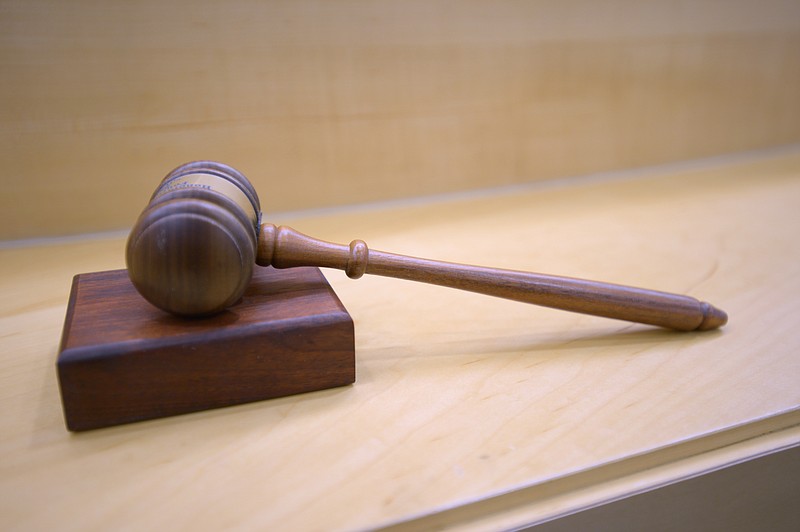The handling by the state's judicial watchdog of one of the most infamous cases in Arkansas history has led to a role for state officials in the international community's efforts to combat misconduct by judges.
David Sachar, the director of the Arkansas Judicial Discipline and Disability Commission, made his second international trip last month to speak at an event sponsored by the United Nations. He said interest in the practices of the Arkansas commission began after it successfully brought ethics charges against Cross County District Judge Joseph Boeckmann, who was accused of pressuring young male defendants into activities of a sexual nature in exchange for lighter sentences.
Boeckmann agreed to permanently depart the bench in 2016 after the commission leveled ethics charges against him that detailed years of abuse of his office. For example, Boeckmann gave male defendants credit for community service by photographing them from behind as they bent over to pick up trash. At the time, Sachar called it "the worst case of judicial misconduct in Arkansas history."
Boeckmann later was convicted of federal charges and is serving a five-year sentence at a federal prison in Texas.
Sachar said that after handling the case, he was asked to attend a conference of the National Association of Women Judges in Washington, D.C., where he connected with an official who later became a consultant for the United Nations' Office on Drugs and Crime.
In 2018, Sachar attended a U.N. Office on Drugs and Crime conference in Seoul, South Korea, and he later provided input for a paper produced by the Global Judicial Integrity Network on "gender-related judicial integrity issues."
At the time Arkansas began investigating Boeckmann, Sachar said, the state had already adopted many of the best practices used by judicial conduct commissions around the country. Sachar was also president of the Association of Judicial Disciplinary Counsel at the time.
He credited the state commission's staff of six with its work on the Boeckmann case and others.
"Those things we handled were during a time when people were looking for questions, especially during the 'MeToo' movement beginning," Sachar said. "Judges are powerful people, the vast majority of them serve with honor and distinction, and we know that. However, if you are to be harassed or abused by a judge, it's a daunting task to take on someone that powerful. So I think there was interest in the subject because we had more than one case, Boeckmann being the key case."
The other cases that Sachar said he discussed at the Seoul conference included that of Carroll County District Judge Timothy Parker, who agreed to resign after being accused of lowering bail for female defendants in exchange for sexual favors, and Circuit Judge Michael Maggio of Conway, who was relieved from duty after making offensive statements online and revealing identities in confidential cases. (Maggio was later sentenced to federal prison for accepting a bribe.)
Arkansas Supreme Court Chief Justice Dan Kemp, together with Sachar and a top court administrator, traveled to the Gulf nation of Qatar last month to attend a high-level U.N. meeting on judicial integrity.
Topics at the conference included gender-related misconduct issues, as well as issues related to the use of social media and artificial intelligence by judges. A pamphlet for the conference stated that the mission of the Global Judicial Integrity Network is to counter "actual or perceived" corruption in the judicial system.
"It's kind of constant effort to work at it," Kemp said of upholding the integrity of the courts. "One bad apple, one bad case, kind of hurt the public perception of what the court does."
Kemp was sworn in as chief justice in 2017, at which point he also became the chief administrator of the state judiciary. Later that year, he appointed Marty Sullivan to serve as director of the Administrative Office of the Courts. Sullivan also attended the Qatar trip.
Although Kemp did not host any sessions at the conference, he said he took several insights regarding social media and misconduct issues back to Arkansas. As part of his attendance, Kemp said, the state judiciary agreed to incorporate tools and lessons from the conference in training offered to judges back home.
"These tools we can adapt to Arkansas rules and Arkansas situations," said Sachar. "Secondly, the international community is always full of lessons; there are judiciaries that you may surprised to find out are ahead of us in things that we do."
The U.N. paid for all three men to attend the conference, which lasted from Feb. 24-26 in Doha, the capital of Qatar.
The U.N. Office on Drugs and Crime conference tweeted recently that more than 700 participants, representing 118 nations, attended the conference.
SundayMonday on 03/16/2020

